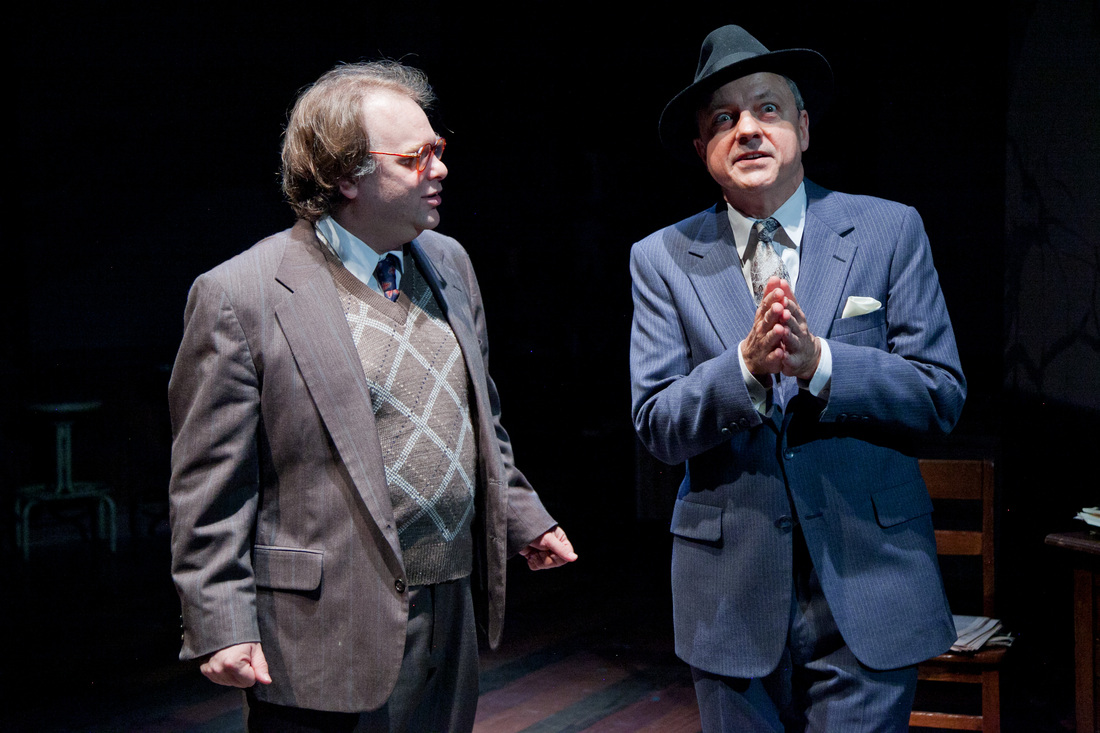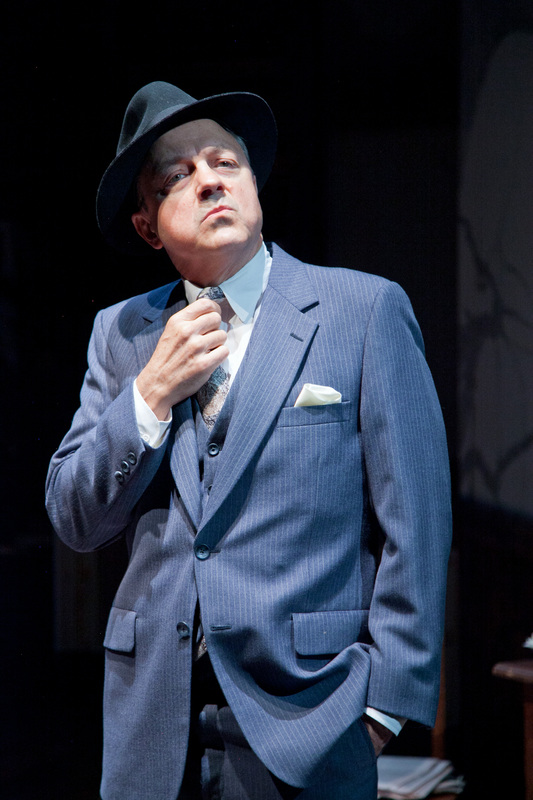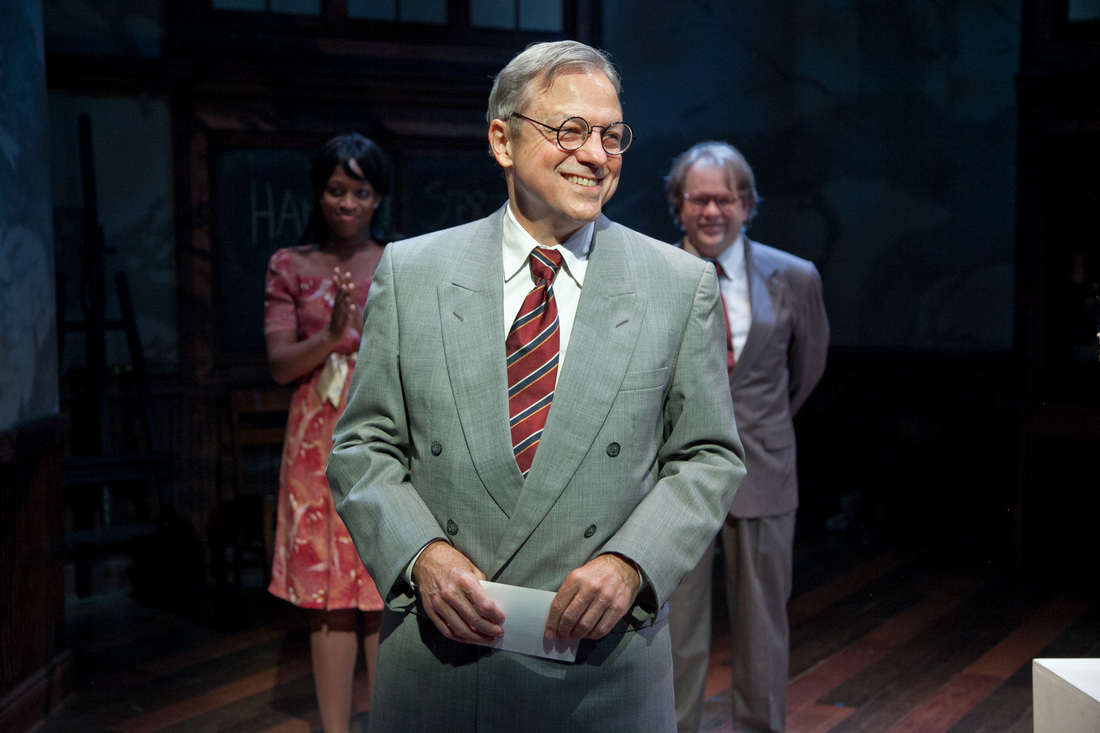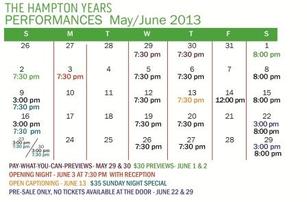|
JACQUELINE LAWTON: To begin, why did you decide to get into theater? Was there someone or a particular show that inspired you? EDWARD CHRISTIAN: As a young man in Houston I was cast as Francis Flute in our high school version of Midsummer Night's Dream. I was in ninth grade and the leads were seniors, so it was pretty cool that I was up there on stage with them. I still remember the curtain going up and my trepidation as I stood there in my Thisby dress with foam boobies and a silly wig. (The director assured me that in Shakespeare's day the women were played by men, but this was Texas in the 1960's after all.) We slayed, everyone was laughing including the senior football player playing Pyramus - in that moment it became clear to me that I could play comedy and that l wasn't the sort to break character. For weeks after the teachers in my school imitated me in class - the sincerest form of flattery. I was hooked. JL: Set in Hampton, Virginia in the 1940s, THE HAMPTON YEARS examines the impact of World War II on Jewish immigrants living in the United States and their role in shaping the lives and careers of African American students in the segregated south. This play investigates the various ways in which racism and bigotry negatively impact the arts, academia and military. Where do you feel we are in terms of race relations in the U.S.? EC: I think the fact that Barack Obama and Tiger Woods are considered to be black says a lot about race attitudes in this country. Both had parents of different races. President Obama is no more black than white, Woods just as Asian as African. To me it speaks to a special place we reserve for "blackness" and it hearkens back to the days of quantifying percentages of African blood in order to apportion rights under law. It makes me think we have a long way to go before race is no longer a factor in this country. I have noticed a strain of right-wing thought that claims that racism no longer exists in the US, usually accompanied by more claims that end up, upon examination, to simply be racism in disguise. We hear scathing opinions about the effects of affirmative action that seem to imply that there is economic advantage in being African American, an idea that is belied by appalling rates of black unemployment in DC and elsewhere. Black comedians make interesting and appallingly hilarious points about the difference in police treatment of blacks and whites; as a white male I have little fear of an encounter with police officers, an attitude that I suspect is not shared by most black males in this country. This is a particular area of concern, policing of communities. Municipalities grant draconian police privileges in high crime areas, "stop and frisk" for example - and we see in DC that eight blacks are arrested for marijuana possession for every one white, resulting in further classification of minority communities as high crime areas, resulting in further erosion of constitutional rights. Racism permeates our attitudes on so many levels. Trayvon Martin's hoody says "scary black man" - Mark Zuckerberg's hoody says "brilliant entrepreneur." So where are we? I would say that we have made some progress, but we have a long way to go before we can harness the talents and brilliance of our entire population. JL: THE HAMPTON YEARS also celebrates and honors such extraordinary artists as John Biggers, Elizabeth Catlett, Samella Lewis, Viktor Lowenfeld and Charles White for their bold and courageous ability to overcome these challenges and create beautiful, powerful and lasting works of art. Why do you feel this play is relevant to today audiences? EC: Art is an essential expression of culture. In Hampton Years we see African American artists coming to terms with their own artistic expression and with the art of some of their ancestors in Africa. Most Americans of European descent can trace something about their backgrounds in a more or less coherent track from quite a ways back. My family can be traced to England, Ireland and Germany, and I feel a kinship with my forbears and in terms of attitudes and culture I owe a great debt to my ancestry. Although I am somewhat of an American mutt, European cultural values exist within me and my family in many obvious ways, and when I see artwork of European masters I see myself and my family in it. The experience of slavery deprived the US African American population of a similarly coherent cultural tradition by ripping Africans out of their native lands and then, after transplanting them to this country, continually separating them from their families, ripping apart husbands and wives, mothers and children. I can only begin to imagine the difficulties in maintaining a cultural tradition that sustains under hundreds of years of such treatment. In the Hampton Years we see part of the struggle of African Americans reclaiming cultural heritage, and it is a useful reminder to European Americans what a great advantage we have in our own coherent cultural memory and traditions. JL: Which character are you playing? What, if anything, do you have in common with this character’s passions, values, intentions or belief system? EC: I play the Anonymous Art Critic and President Ralph Bridgman. The Anonymous Art Critic insists that he won't lie about his reaction to the student artwork, and I agree with the need to avoid pulling punches in our artistic judgment, but he is also completely beholden to his own expectations about what African American artists can be or should be expected to produce. He cannot see past his own racial prejudice. He also seems calcified in his opinion of what constitutes the parameters of legitimate art; I think this is a potential trap for anyone invested in an artistic tradition no matter what the discipline. President Bridgman, the last white president of Hampton Institute, has less overt racial prejudice and by the standards of his time might be considered racially liberal, but he subscribes to the "world won't accept them" school of thought like the liberal lion father in Guess Who's Coming to Dinner who objects to his daughter's marriage to a black doctor on the grounds that they will never make it because the world won't let them succeed. I'm old enough to remember this as a common point of view among southern liberals in the 1960's, along with the fear that mixed race children will not be accepted by anyone; these fears have proven to be misguided. The problem is that Bridgman, and even his predecessor McLean ended up accepting lesser outcomes. The other thing about Bridgman is that he cannot see the forest for the trees. He is so trapped by the details of the monthly or yearly budget or the institute's reputation that he loses sight of the overall mission of Hampton. I think we are all subject to such traps. JL: What’s next for you as an actor? Where can we follow your work? EC: In September I will be playing Shipkov in Forum Theatre's production of Agnes Under the Big Top by Aditi Brennan Kapil, directed by Michael Dove. Shipkov is a Bulgarian with a green card, a former ringmaster in a Bulgarian circus who is now working as a subway operator. Any of my career happenings can be followed at www.edwardchristian.com 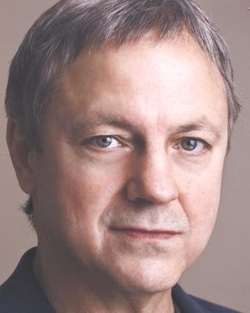 EDWARD CHRISTIAN (President Bridgman and Anonymous Art Critic) recently appeared in the Folger Theatre's The Taming of the Shrew. Other regional credits include Forum Theatre: The Language Archive. He's also performed extensively with Perseverance Theatre: This Wonderful Life, Doubt, How I Learned To Drive, Hamlet, The Tempest, Macbeth, The Laramie Project, Twelfth Night, Much Ado About Nothing, A Streetcar Named Desire, Hedda Gabler, The Cherry Orchard, The People’s Temple, Equus, The Crucible, The Waiting Room, The Rocky Horror Show, Blithe Spirit, and As You Like It. Upcoming productions include: Henry V at Folger Theatre and The Hampton Years at Theater J. www.edwardchristian.com
0 Comments
Your comment will be posted after it is approved.
Leave a Reply. |
My BlogI'm a playwright, dramaturg, and teaching artist. It is here where you'll find my queries and musings on life, theater and the world. My posts advocate for diversity, inclusion, and equity in the American Theatre and updates on my own work. Please enjoy!
Categories
All
Archives
June 2020
Reading List
|
